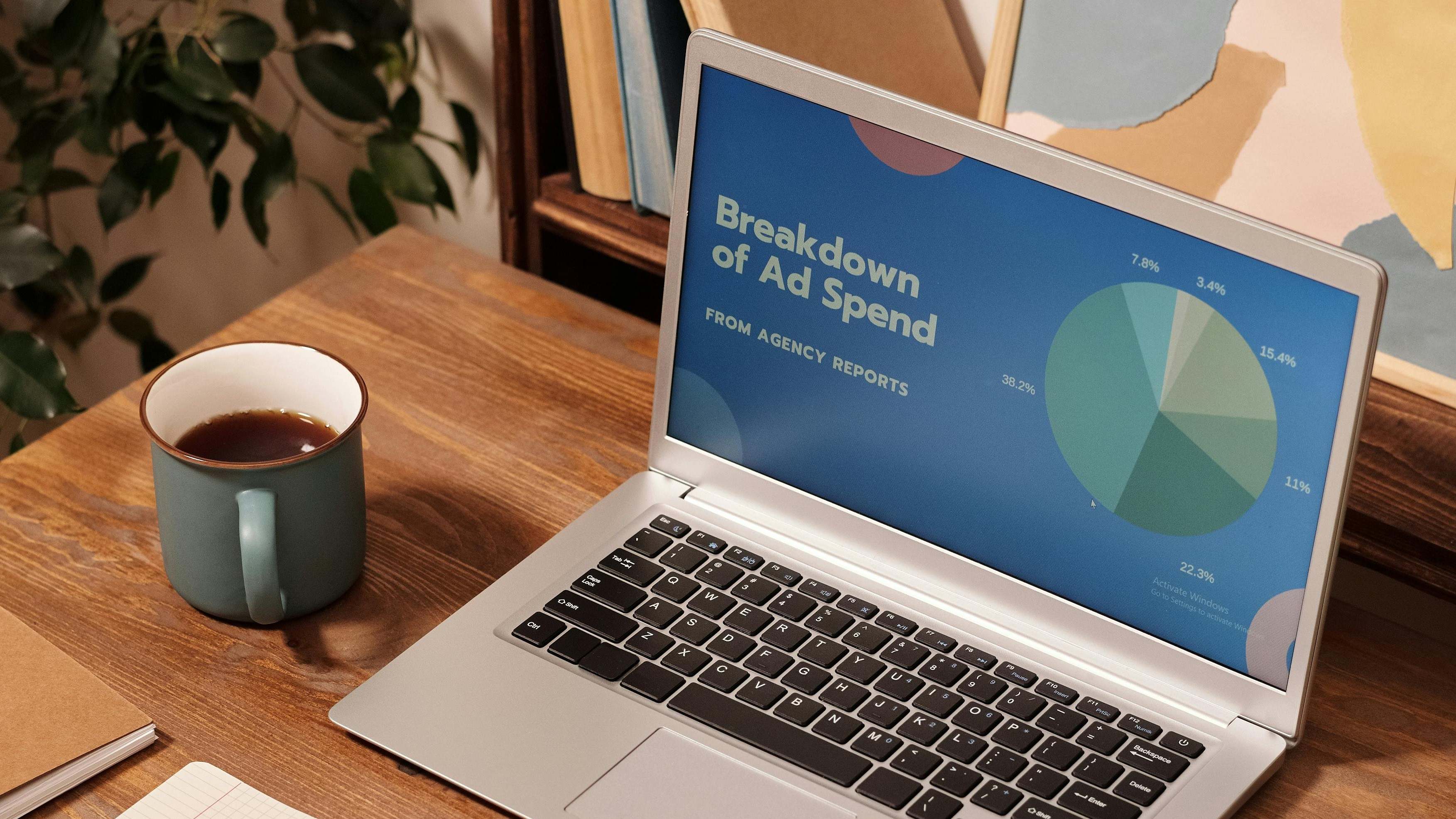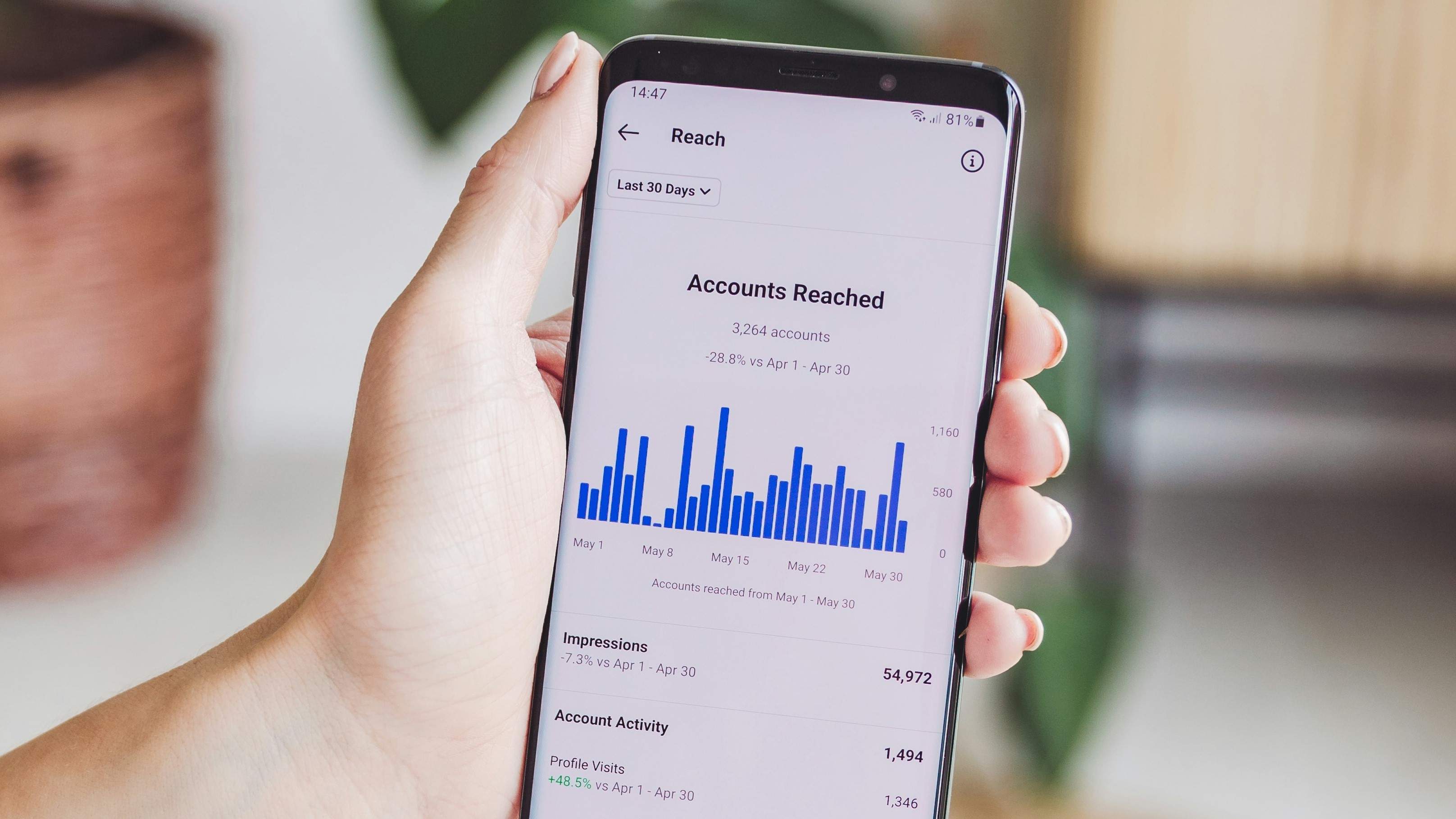5 tips for successful sponsored campaigns
So, you have a big product launch coming up or an industry event that your company is sponsoring. While it's important to organically post about it on your own social media channels, there's value in running paid ads. Here’s why.

Reach millions of users outside of your network
Organic reach on social media platforms has been declining due to changes in algorithms, so paid ads guarantee visibility and help your content stand out in crowded user feeds.
While engagement from your existing followers is valuable, paid ads can help extend reach beyond your community and tap into new audiences that an entire social network can provide. In Europe:
- LinkedIn reported having over 200 million active users.
- Instagram reported having approximately 155 million users.
- Facebook reported approximately 410 million users.
- TikTok reported having approximately 100 million users.
- YouTube is estimated to have approximately 500 million people.
Going beyond your community means potentially reaching millions of users on these different platforms, increasing your chances for visibility.
Get to your goals and objectives more efficiently
Research and studies have shown that users need to see an ad 3-5 times on average before they take action (like clicking on the link you've provided). By consistently and frequently reaching your target audience, potential customers are more likely to consider your brand when they're ready to purchase.
Once they do, successful sponsored campaigns give you an efficient way to drive more traffic to your website or landing page, increasing the opportunities for lead generation and conversions.
Ready to get started?
Here are 5 tips for successful sponsored campaigns:
1. Define your key result.
The first step is to be clear on your ideal outcome. Your key results should reflect the kind of sponsored campaign you are running, for example:
- Brand awareness campaigns focus on reach.
- Traffic campaigns promoting a website or content hub page will focus on clicks.
- Conversion campaigns focus on converting users.
Focusing on key results will help you to achieve an outcome based on your objective and help set up your sponsored campaign for success.
2. Create engaging content specifically for your target audience
Although you have the potential to reach millions of users in these different digital channels, you will have to be precise on your ideal audience. In many digital platforms, you can target based on many different factors such as:
- Location - you can be specific on the country or list of countries in certain regions
- Demographics - in some platforms, you can target based on age, gender, income, education, etc.
- Background / Interests - based on profession, industry, level of seniority, etc.
Once you have an understanding of your target audience, it’s time to align your content strategy accordingly and produce content that will drive key results. You can choose topics that pique your audience’s interests like industry news and pair it with engaging visuals like images, videos, infographics, and other elements that fits your target audience’s aesthetic and preferences.
3. Commit resources, time and budget
While it's no surprise that campaigns run on a budget, it's worth noting that pricing can vary depending on your key result, communication channel, target audience and duration among others. LinkedIn recommends a minimum duration of approximately 2 weeks to see optimal results and determine if your campaign is long enough to hit your goals. You can start small, test different strategies, and then invest more in what works best.
And, advertising on social media doesn't mean you can set it up and be done with it. The social aspect requires your community manager to engage in the comment section after you pose a question in your ad content and foster a discussion to create a sense of community. A holistic approach to sponsored campaigns can benefit your marketing goals and objectives in the long run.
4. Learn what KPIs to track to measure success
While it may be overwhelming to track KPIs, the key is to go back to your objectives and key result. For awareness campaigns, you're aiming for as many users as possible to see and interact with your ad.
For web traffic campaigns, you would want to track how many people have clicked on your ad to get to your landing page or content hub. On the website, you will want to track how many users have actually spent time on your page, the actions they took (did they go to a related page on your website?) and how long they bounced off the page.
For social media campaigns, here's a cheat sheet of what you should be looking out for:
- Awareness: Reach, impressions, engagements
- Engagement: Shares, mentions, comments, sentiment, engagement rate
- Traffic: Clicks, click-through rate
- Lead generation: Clicks, leads, form submissions
- Conversions: Click-through rate, conversion rate, form submissions
Identifying your key result allows you monitor your sponsored campaign properly and recognize if you're hitting your goals. If it's not, you'll need to optimize and adjust.

5. Optimize, optimize, optimize!
Paid ads provide detailed analytics so you can track your campaigns in real-time and adjust strategies as needed, such as increasing the duration and/or your boosting budget.
An excellent way to optimize your campaign is to engage in A/B testing. In a study, 70% of marketers believe that A/B testing is essential to boost conversion rates. With this method, you run two identical campaigns, then change one variable in the second campaign to see if it impacts campaign performance. This could be the visual in your ads or changing up the copy from a long to shorter text that starts with a question.
True A/B testing should run for a minimum of two weeks before the metrics are evaluated, to ensure there has been enough time for your campaigns to achieve tangible results.
When in doubt, ask a professional.
Running sponsored ads is an investment but it doesn't have to be complicated. Social media experts can guide you to make decisions that best fit your business goals and marketing objectives.
Got questions? Reach out to your trusted Hill & Knowlton team!
Want to learn more?
Check out our previous newsletter editionsor get in touch with us at
ContentPublishing-Germany@hillandknowlton.com for any questions!
We’re happy to advise you on the best digital strategy for your brand.